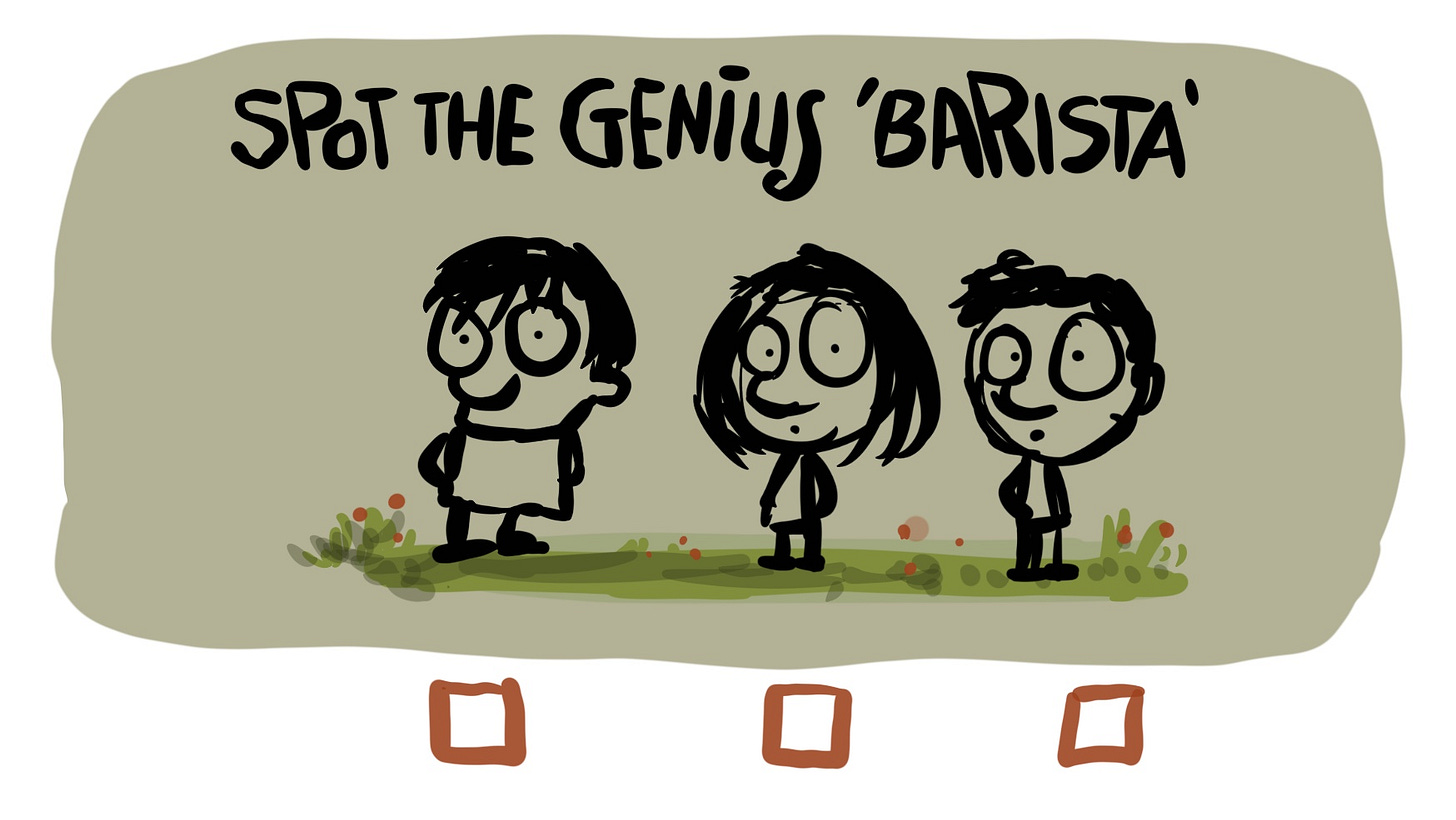Why some people are naturally good at certain things while others are not.
(Was Einstein a genius at riding the bicycle? I think not!)
Do you know anyone who got on a bicycle the first time and rode off right away?
If you ask this question to just about anyone you know, the answer is likely to be the same. There isn't a single natural-born bicycle rider in the world. Not that we know of, anyway. Why is this the case? Is bicycle riding so very difficult? Or maybe it's just because learning to ride a bicycle is done very much in the spotlight—and usually past a certain age?
I can't remember when I learned to ride a bicycle
I grew up very middle class in Mumbai, India. And as a middle class kid, you got toys, perhaps a bat and a ball, but no bicycle. Instead, you went to the end of the lane, where you rented a bicycle, usually for an hour at a time. There was no new, shiny bicycle as a gift on my seventh birthday, so the story must have revolved around my father taking me to the bike place, renting the bike, and helping me learn to balance and ride away. And as far as I can remember, my friends all learned to ride the same way.
But not one of them was naturally good
We were all likely to be around the age of seven. No one learned to ride at home, no one learned to ride at the age of two or three. Not one person I know was ever doing wheelies at five. This lack of ability didn't stop with bike riding. We are all bad at eating with a spoon, bad at walking without falling, bad at forming the most basic sentences. Yet, it's easy to brush all of that ineptitude under the carpet. It's easy to simply say that some people are naturally good at doing certain things.
Simply shrugging our shoulders and saying: they're naturally talented is usually the easy way out.
And yet there are people who seem to be way smarter than you. You know the kid who was a genius in maths. You definitely remember the kid who could draw better than anyone in the class. And yet, as Daniel Coyle, points out in the book, "The Talent Code", they're only "naturally good" at a certain age. The others aren't bad. They're likely to be catching up. They just need more time.
Einstein was one of those that needed more time
There's no doubt that Einstein was whip-smart. In just under four months in 1905, Einstein wrote four papers that gave the scientific field a whiplash. The first paper explained how to measure the size of molecules in a liquid, the second drooled over packets of light move around in packets called "photons". The third was related to the first, namely about how to determine the movement of molecules in the liquid. The fourth unwrapped special relativity. And then as sort of P.S., Einstein came up with a fifth paper which showed the matter and erergy can be interchangeable at the atomic level. And that equation, e = mc2 is often associated with the genius of Einstein.
Yet did we peek into Einstein's classroom?
There were certainly others in his year that were better at maths. Others who were exceedingly good at drawing. And we're guessing here, but it's likely that Einstein wasn't the top student at physics in school. And as we go across the spectrum of extremely talented people on the planet, we cherry pick our case studies. We tend to look around us and pick the kids who were smarter—but only in school.
Yet, there are tens of thousands of extremely talented people all around us and they showed no special gift at school. If anything, if you were to ask around in your neighbourhood, you'll find people who are geniuses at making coffee, juggling umbrellas, fixing computers, or figuring out equations in their head. It's also likely that they showed no special skills at birth, at the age of seven, ten, or even twenty one.
If you want to focus on Einstein as a genius, be my guest
But even Einstein was never considered anything more than average by the outside world. The miracle year of 1905, was merely the year his ideas caught up and saw the light. Granted, every brain is not wired the same way, but most brains are wired very efficiently. So efficiently, that is, that while we may not write papers in physics, we're exceedingly good and can reach an extremely high standard in one, or many disciplines.
You're not likely to write five astounding scientific papers in a year
It's not like you're suddenly going to 'catch up' and become a genius in physics. However, bear in mind that you can reach incredibly high levels of skill in many fields. And yes, it is a matter of catching up. What's more the catching up doesn't take decades, either. A person who's "hopeless at drawing" becomes pretty astounding in under a year. A person who loses his sight, becomes incredibly adept at the language of braille in about nine months. We look around us and think people are better than us, and we give up.
When faced with such thoughts, remember this line: Even Einstein fell off the bicycle, like the rest of us.
Did you like this? Oh, you’re right at the end, so yes, you probably do. In any case, this publication will show up twice a week. Mondays—you’ll get a concept like the one above. Fridays—you’ll get a real “how to get better at…” (photography, or cartoons, or writing, or story telling. Possibly even a bit of Indian food).
Beep, beep, off to mind my sheep!




